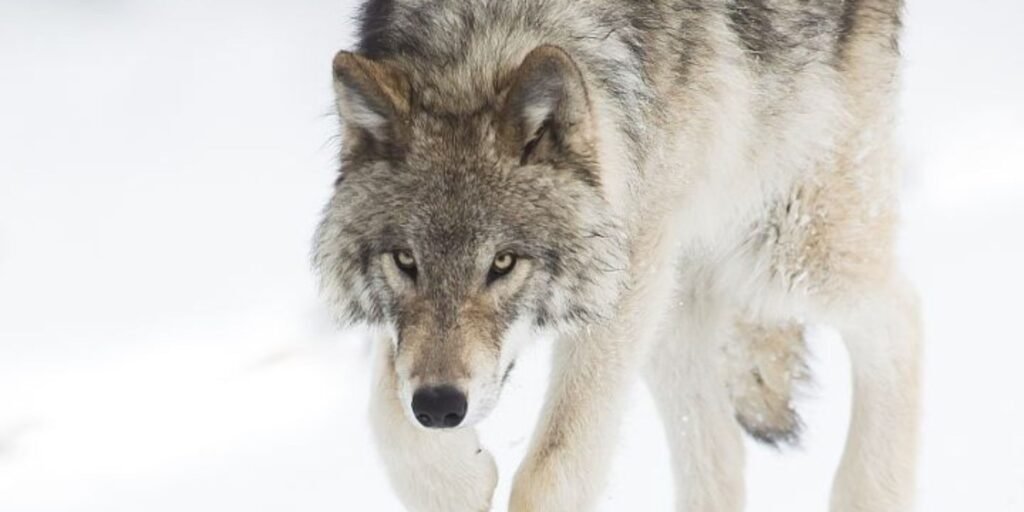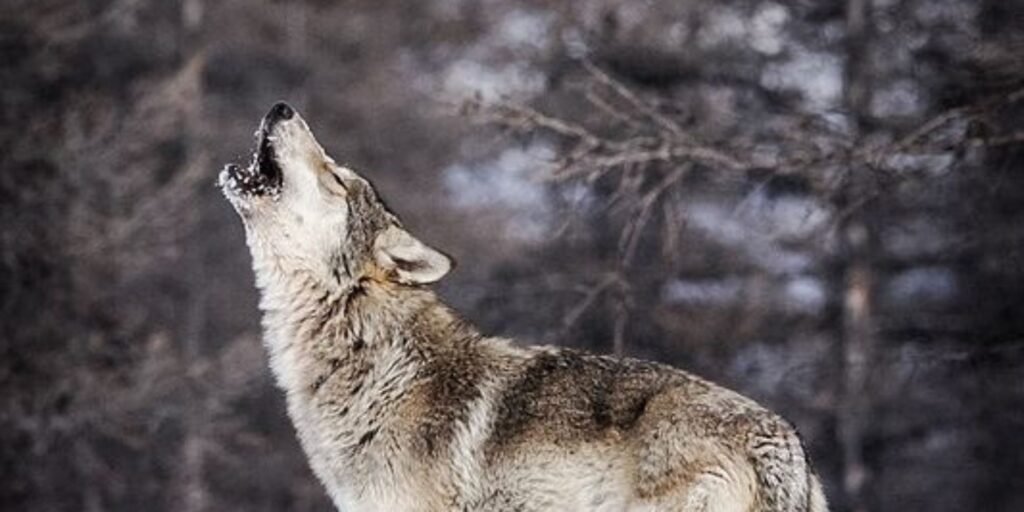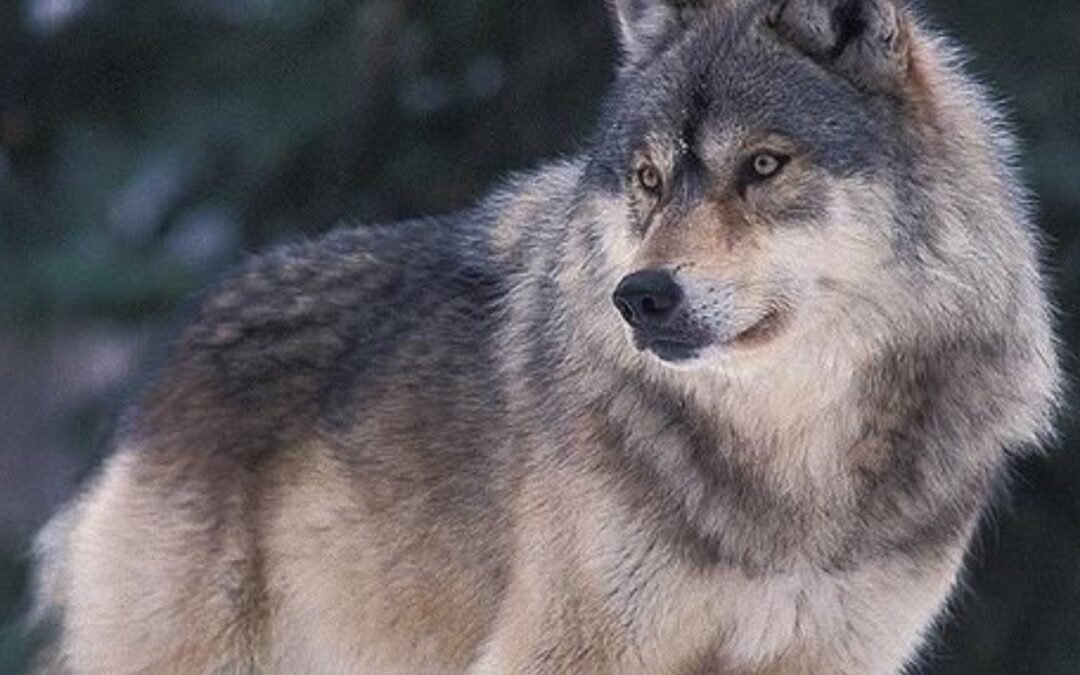Wolves have always captured our imagination. Whether seen in stories as fierce predators or admired for their majestic presence in the wild, they hold a special place in human culture. However, a common question people often ask is: Is a wolf human-friendly? While wolves are generally wild animals and can be cautious or even defensive around humans, some interactions have shown that they can exhibit curiosity or calm behavior in specific circumstances. It’s important to understand that they are not domesticated, and their behavior is driven by instincts rather than a natural inclination to be “friendly” with humans.
In this article, we will explore wolf behaviour, how they interact with humans, and whether wolves can be considered “friendly” to us. By understanding their nature, we can gain insights into how wolves behave in the wild and captivity and what makes them unique.
What Makes Wolves Unique?
Wolves, scientifically known as Canis lupus, belong to the Canidae family, which also includes domestic dogs. These intelligent, highly social animals live in packs led by an alpha pair and rely on cooperation for survival, especially during hunting. They are found in various environments, from dense forests to open grasslands, and they are known for their ability to adapt to diverse climates.
However, despite their wide-ranging presence, wolves are not naturally inclined to seek out human contact. Instead, they focus on their primary goals of hunting, protecting their territory, and raising their young. This brings us to the question: How do wolves interact with humans?
Do Wolves Avoid Humans in the Wild?

In the wild, wolves typically avoid humans. These apex predators are more focused on survival and will generally steer clear of human settlements. Wolves are naturally cautious, using their keen senses to detect danger, and most will retreat if they encounter humans. While wolves are curious animals, they don’t actively seek human interaction.
Instinct to Avoid Conflict
Wolves, being predators, don’t view humans as prey. Instead, their instincts drive them to avoid conflict. Unlike some other predators, wolves are less likely to pose a danger to humans, and attacks on humans are extremely rare.
Most wolves prefer to maintain a distance, which explains why human-wolf interactions are uncommon. This behaviour is vital to their survival in the wild, where avoiding dangerous situations increases their chances of living longer and reproducing.
Are Wolves Dangerous to Humans?
Historically, humans have feared wolves, but this fear is largely due to myths and misconceptions. While it is true that wolves are powerful animals, they do not hunt humans. In fact, human-wolf interactions are often peaceful, with wolves simply avoiding humans when given the chance.
Wolves are more likely to attack if they feel threatened or cornered, but these situations are rare. In most cases, wolves are not dangerous unless provoked. For example, a mother wolf may defend her pups if she perceives a threat, but these instances are infrequent.
Can Wolves Be Tamed or Domesticated?
While wolves and dogs share a common ancestor, they are very different in their behaviour. Wolves have never been domesticated in the way dogs have. Domestic dogs have been bred for thousands of years to live alongside humans, which has made them much more sociable and friendly. Wolves, on the other hand, are wild animals with instincts that are not as easily shaped by human interaction.
Captive Wolves: Can They Be Friendly?
Some people attempt to raise wolves in captivity, but this does not mean they become domesticated or friendly. Wolves raised in captivity may tolerate humans and become accustomed to their presence, but they are still wild animals. They retain their instincts and behaviours, which can make them unpredictable.
While captive wolves may not be as hostile as wild wolves, they are still not suitable as pets. Wolves do not thrive in human homes, as their needs for space, social interaction with other wolves, and mental stimulation are far beyond what most households can provide.
Socialization of Wolves

In captivity, wolves may become socialized with humans, but their interactions are different from those of domesticated dogs. Wolves raised in controlled environments may form bonds with humans, but these bonds are not the same as those seen in dogs. Wolves are not bred for companionship, and their behaviour is more independent. Even in captivity, they are still driven by their wild instincts.
Wolves and Human Interaction in Conservation Efforts
Conservation plays a crucial role in shaping the relationship between wolves and humans. In areas where wolf populations are recovering, conservationists work to educate the public about the importance of wolves and to prevent unnecessary conflicts.
Promoting Coexistence
One of the most important aspects of wolf conservation is teaching people how to coexist with wolves. By raising awareness about wolf behaviour and the role they play in the ecosystem, conservation programs aim to reduce the fear and misunderstanding surrounding these animals.
Additionally, some conservation initiatives focus on minimizing human-wolf conflicts, especially in regions where wolves may come into contact with livestock. By using non-lethal methods such as fencing, guard animals, or compensation programs, farmers and ranchers can protect their livestock while allowing wolf populations to thrive.
Is wolf human friendly? :Wolves and Livestock: A Source of Conflict
One of the main issues that arise when humans and wolves share the same territory is the predation of livestock. While wolves are primarily carnivores, they tend to hunt wild prey. However, in areas where prey is scarce, they may turn to livestock. This creates tensions between farmers and conservationists, as livestock losses can be significant.
Luckily, many solutions to these conflicts have been proposed. Non-lethal measures, such as guard dogs or electric fences, are effective at keeping wolves away from livestock. When these measures are not sufficient, farmers are sometimes compensated for losses. This system helps to mitigate the economic impact on farmers while also protecting wolves from harm.
Is wolf human friendly? :Can Wolves Be Friendly to Humans?
To answer the question, “Are wolves human friendly?” We need to understand that “friendly” behavior in wolves is very different from what we might expect from a dog. Wolves do not naturally form close bonds with humans. While they may interact with humans in captivity, they remain wild animals and retain their natural instincts.
In the wild, wolves tend to avoid humans, and this is by design. They are not inherently dangerous to people but prefer to keep their distance.
Is wolf human friendly? :The Future of Wolves: Coexistence Is Key
Wolves are intelligent, social animals that play a vital role in ecosystems. While they are not “friendly” to humans in the same way that dogs are, they do not pose a threat unless provoked. With the right conservation efforts and public education, wolves and humans can coexist peacefully.
Through continued conservation, efforts to minimize human-wolf conflicts, and promoting respect for wild animals, we can ensure that these magnificent creatures remain a part of our natural world for generations to come.
Is wolf human friendly? :Conclusion

While wolves are not inherently friendly to humans, they are fascinating creatures deserving of our respect. Understanding their behaviour helps to debunk misconceptions and foster positive interactions between wolves and people. Through education and conservation efforts, we can protect wolves and ensure that they continue to thrive in the wild, playing an important role in maintaining ecological balance.

